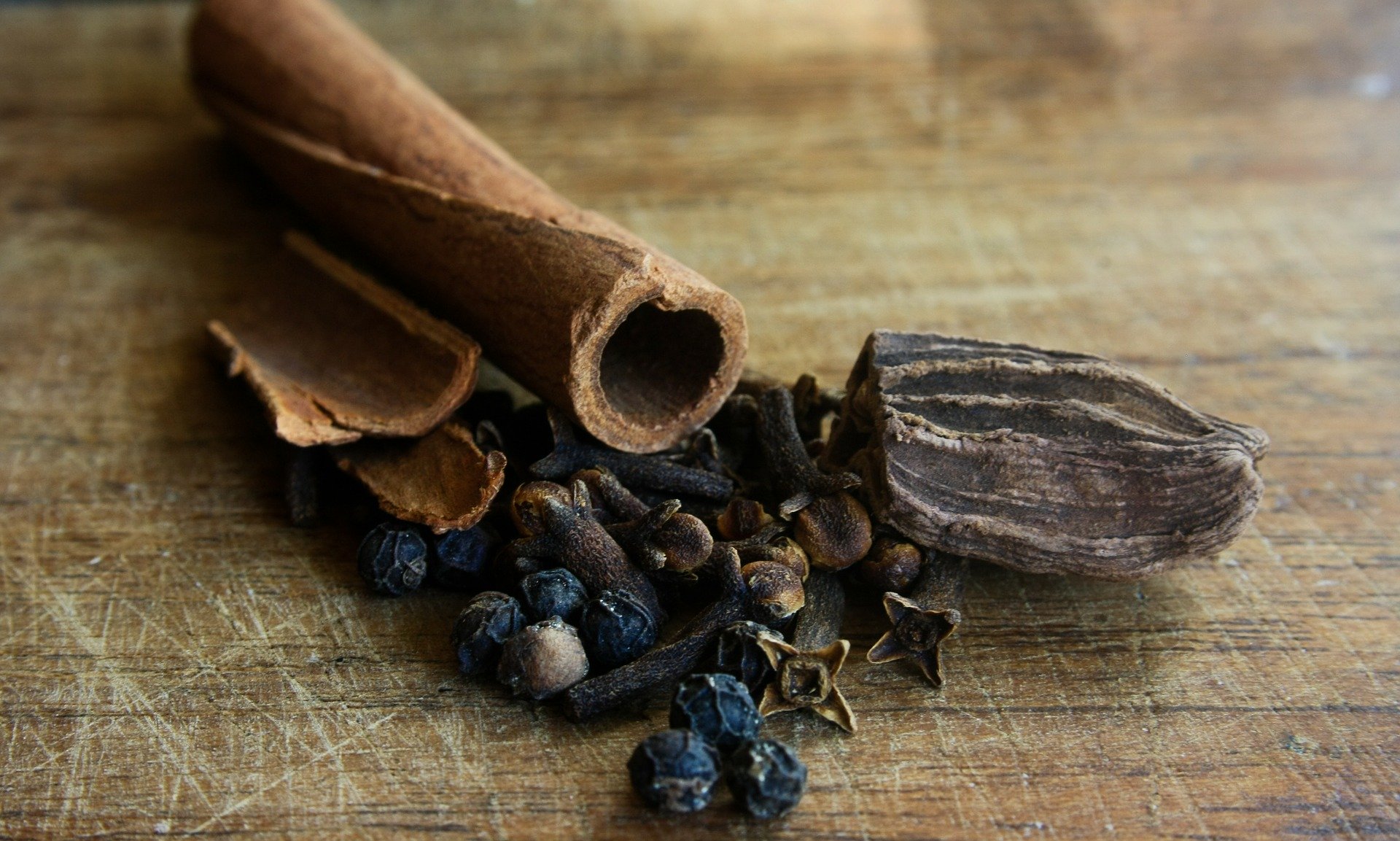As the seasons shift and the air begins to cool, I find myself turning again and again to a handful of beloved spices that bring warmth, comfort and balance – not just to the food I eat, but to my whole system.
These five spices; cardamom, clove, long pepper, coriander and nutmeg, have been used for centuries in both culinary and medicinal traditions, from Ayurveda to Western herbalism. Their flavours are vibrant, their energetics warming and their actions deeply supportive to body and mind, particularly during the colder, darker months.
Here’s a little about why I love each one, and how you might begin to weave them into your daily life.
Cardamom – The gentle heart-opener
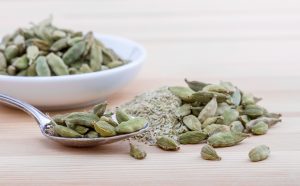 Cardamom is one of the most elegant and uplifting spices I know. With its sweet, floral aroma and softly warming nature, it brings a kind of emotional lightness – a perfect antidote to the heaviness of winter. Traditionally used in both Ayurvedic and Unani systems of medicine, cardamom is known to:
Cardamom is one of the most elegant and uplifting spices I know. With its sweet, floral aroma and softly warming nature, it brings a kind of emotional lightness – a perfect antidote to the heaviness of winter. Traditionally used in both Ayurvedic and Unani systems of medicine, cardamom is known to:
- Support digestion and ease bloating
- Clear mental fog and lift low spirits
- Brings clarity and aids focus in meditation
- Help relieve coughs and congestion
I often add crushed cardamom pods to herbal teas, spiced porridge or even a simmering pot of dal to add both flavour and subtle medicine. For a delicious and uplifting combination, try combining it with a dash of rose!
Clove – The fiery protector
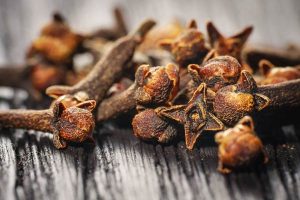 Clove is tiny but mighty. Pungent and intensely warming, it’s a powerful antimicrobial, often called upon for its ability to tackle infections and stimulate circulation. Clove has a long history in herbal traditions for:
Clove is tiny but mighty. Pungent and intensely warming, it’s a powerful antimicrobial, often called upon for its ability to tackle infections and stimulate circulation. Clove has a long history in herbal traditions for:
- Soothing toothache and gum pain (thanks to its high eugenol content)
- Supporting the respiratory system during colds and flu
- Warming cold hands and feet by boosting peripheral circulation
- Supports gut health by suppressing unfriendly microbes
In the winter months I love infusing clove into warming chai blends or steeping a few with orange peel for a simple immune-supporting tea.
Long Pepper (Pippali) – The ancient revitaliser
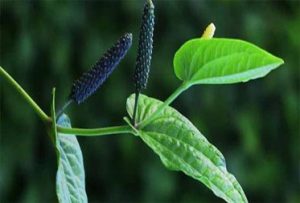 While not so well-known in the West, long pepper (Piper longum) is one of Ayurveda’s most revered spices. It’s milder and more complex than black pepper with a subtle sweetness and a deeply penetrating heat. Pippali is used to:
While not so well-known in the West, long pepper (Piper longum) is one of Ayurveda’s most revered spices. It’s milder and more complex than black pepper with a subtle sweetness and a deeply penetrating heat. Pippali is used to:
- Stimulate agni (digestive fire) without aggravating the system
- Clear congestion and open the lungs
- Rejuvenate energy and strengthen resilience, particularly in depleted states
- Greatly improves digestion and absorption of nutrients
I like to add a pinch of ground long pepper to honey and take it as a simple remedy for chesty coughs or to enhance digestion before meals.
Coriander – The cooling harmoniser
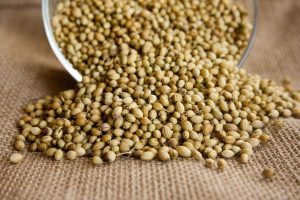 Though often thought of as a cooling spice, coriander is incredibly balancing – in fact it balances all three doshas. It soothes inflammation, supports digestion and pairs beautifully with stronger, hotter spices like clove or long pepper. Medicinally, coriander can:
Though often thought of as a cooling spice, coriander is incredibly balancing – in fact it balances all three doshas. It soothes inflammation, supports digestion and pairs beautifully with stronger, hotter spices like clove or long pepper. Medicinally, coriander can:
- Aid digestion and relieve wind
- Support urinary health and reduce water retention
- Calm nervous tension and reduce excess heat in the body
I often steep coriander seeds with fennel and cumin for a gentle digestive tea, especially after heavier meals or during seasonal transitions.
Nutmeg – The calming sedative
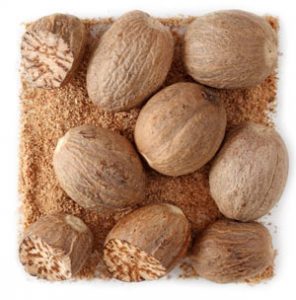 Nutmeg is often associated with festive baking, but its value in herbal medicine goes far beyond flavour. Warming, grounding and sedative, nutmeg helps settle both body and mind. It is traditionally used to:
Nutmeg is often associated with festive baking, but its value in herbal medicine goes far beyond flavour. Warming, grounding and sedative, nutmeg helps settle both body and mind. It is traditionally used to:
- Support deep, restful sleep
- Calm the nervous system and ease anxiety
- Relieve diarrhoea and calm the gut
Nutmeg is a valuable part of our sleep powder. A small pinch of freshly grated nutmeg in warm milk or plant-based milk before bed can work wonders for a restless mind. Just be cautious with the quantity, nutmeg is potent and a little goes a long way!
What I love about these five spices is not just their flavour or fragrance, but the way they support the gut, tend to the nervous system and gently lift the spirits. They’re everyday kitchen spices, yet each one carries a rich history and a powerful ability to heal.
If you’re curious to explore these spices in more depth, why not try making your own winter spice blend or immune-boosting chai? Let me know what spices you choose!


